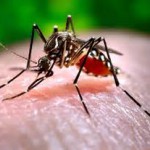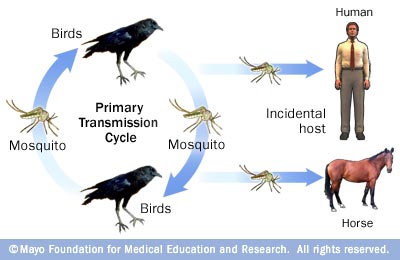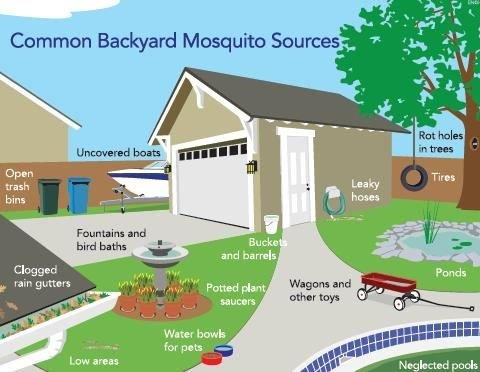 University of Florida researchers maintain a constant vigilance on the potential for mosquito-borne illness concerns. UF/IFAS Florida Medical Entomology Laboratory in Vero Beach tracks rainfall, groundwater levels, mosquito abundance, wild bird populations and virus transmission to animals including horses and sentinel chickens. When mosquito infection rates reach the levels that can infect humans, alerts are sent out. Through the Florida Department of Health, the Centers for Disease Control and Prevention Health Alert Network issues advisories on a weekly basis to those counties at risk. Such an alert was issued for Gadsden, Polk and Walton Counties for the week of July 19-25, 2015. Unfortunately, the first 2015 confirmed human case of West Nile Virus illness in Florida occurred in Walton County shortly thereafter. It was just another reminder for people to take action to reduce their potential for mosquito development in their landscape.
University of Florida researchers maintain a constant vigilance on the potential for mosquito-borne illness concerns. UF/IFAS Florida Medical Entomology Laboratory in Vero Beach tracks rainfall, groundwater levels, mosquito abundance, wild bird populations and virus transmission to animals including horses and sentinel chickens. When mosquito infection rates reach the levels that can infect humans, alerts are sent out. Through the Florida Department of Health, the Centers for Disease Control and Prevention Health Alert Network issues advisories on a weekly basis to those counties at risk. Such an alert was issued for Gadsden, Polk and Walton Counties for the week of July 19-25, 2015. Unfortunately, the first 2015 confirmed human case of West Nile Virus illness in Florida occurred in Walton County shortly thereafter. It was just another reminder for people to take action to reduce their potential for mosquito development in their landscape.
With all the quick afternoon thunderstorms and frequent irrigation events, now is the time to check out where the water is collecting in your yard. The female Culex nigripalpus mosquitoes lay their eggs in temporary flood water pools; even very small ones such as pet watering bowls, bird baths and upturned Magnolia leaves. Dumping out the collection containers every couple of days can greatly reduce the population.
Becoming infected with West Nile Virus is not easy. Mosquitoes usually obtain the virus by feeding on infected wild birds, many of which have migrated from areas that have ongoing West Nile Virus outbreaks. Once the mosquito has drawn infected blood from the bird, the virus goes through a temperature-dependent incubation period within the mosquito. Then, when the infected mosquito “bites” a human or horse the virus mixed in saliva is released into the blood stream of the second host. West Nile Virus is not transmitted from one human to another. Nor is it transmitted from bird to human or from horse to human.
Thanks to a devoted set of researchers and government public health officials, here in Florida we are able to monitor mosquito-borne illnesses quickly and effectively. Additional partners, such as local veterinaries, sentinel bird stations and the Florida Fish and Wildlife Conservation Commission (FWC) serve as reporters for virus population. Should an individual come across dead birds without an obvious cause, reporting them to the FWC at www.myfwc.com/bird/ is the best thing to do.
 As for protecting yourself, here are a few pointers:
As for protecting yourself, here are a few pointers:
Stay indoors at dusk (peak mosquito biting time).
If you must be outside, wear long sleeves and pants and/or mosquito repellents containing the active ingredient DEET.
Repair torn door and window screens.
Remove unnecessary outside water sources.
Flush out water collected in outdoor containers every 3-4 days.
Disturb or remove leaf litter, including roof gutters and covers on outdoor equipment.
For additional information, contact your local Extension office about obtaining a free Florida Resident’s Guide to Mosquito Control.
- Watch for “Melting Grass” - February 19, 2025
- Palms Can Suffer in the Cold - January 30, 2025
- Camellia Care - January 9, 2025
